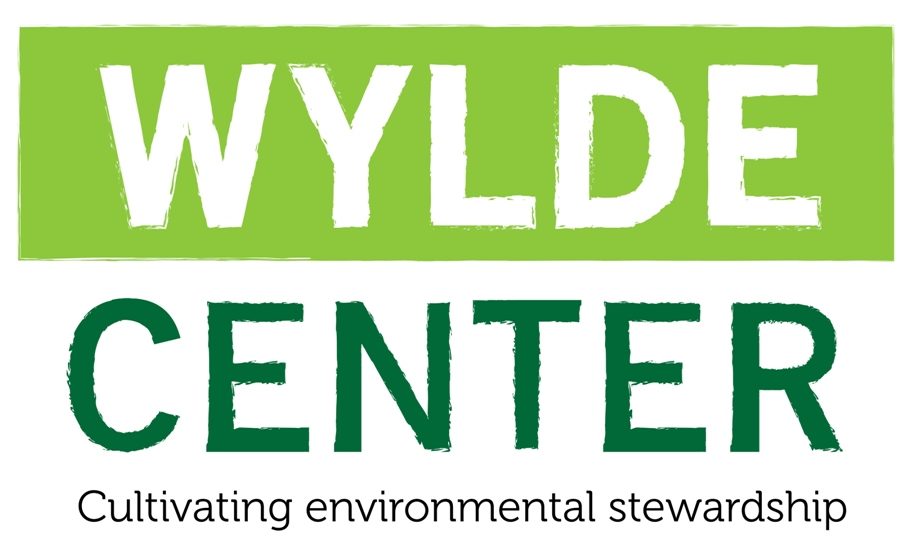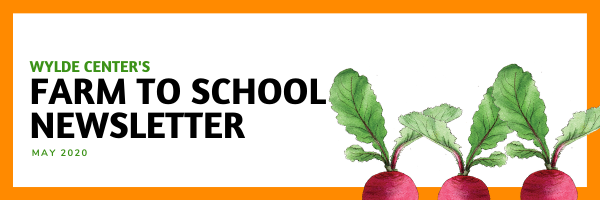
We hope you enjoy this special edition of Wylde Center's Farm to School Newsletter! We offer a monthly farm to school newsletter for teachers, parents, and other stakeholders to offer helpful information for school gardeners, like seasonal gardening tips, curriculum ideas, and professional development opportunities for teachers. To receive future issues of Wylde Center's monthly Farm to School newsletter, please sign up by following the link!
Staying Connected
We feel confident in sharing this bold, albeit rather obvious, statement--it has been the most beautiful, temperate Spring in metro Atlanta in recent memory. Cool evenings, warm afternoons, and abundant sunshine have made it a bit more tolerable (dare we say joyful even?) to be sheltering at home in order to stay safe and protect the health of others during this pandemic. The only real downside to this gorgeous weather is that many of us are tied to our computers and other electronics in ways we haven’t been before. With Zoom meetings and Google Classroom and conference calls and video classes and lectures, many of us are forced to completely rethink the way we complete our schoolwork or fulfill our job requirements.
Here at Wylde Center, we’re in the same boat you are! Typically our work takes us outside at one of our five greenspaces or to school classrooms and gardens, but we too are required to pivot and take a new approach. With that in mind, we’re stocking this newsletter with a variety of online content to get you growing plants, eating fresh fruits and vegetables, and taking advantage of this incredible Spring.
Please know that we are missing our students and teachers and school families so much and as soon as it is deemed safe to do so, we’re going to be happily gardening and preparing yummy food together in person.

Remote Opportunities for Garden Education
Hopefully you’re getting to enjoy the lovely weather by taking brain breaks outside on walks, riding bikes, or having “recess” in your yard or a nearby park. While you’re out, here are some ideas for engaging your student in a conversation or activity that is related to their grade-level learning standards. Help yourself to these book videos to get the ball rolling!
Kindergarten: Ms. Nichole reads If You Plant a Seed by Kadir Nelson. Think about all the living things that rely on plants for food and shelter, then plant some flowers that insects love, like milkweed for monarchs, sunflowers for birds, or zinnias for bees.
Second Grade: Mr. Thom reads Compost Stew: An A to Z Recipe for the Earth by Mary McKenna Siddals, illustrated by Ashley Wolff. As you prepare a snack or a meal with things that come from the earth, collect the parts you don’t eat to add to a compost pile. Notice how, over time, those parts of fruits or veggies, eggshells, coffee grounds, and dried leaves transform into something that looks very different from how they looked originally. Remember, they are still so full of nutrients and their life cycles will continue in the form of rich compost for the soil.
Fourth Grade: Ms. Nichole reads The Water Princess by Susan Verde, illustrated by Peter Reynolds. Next time you boil a pot of water for pasta or a cup of tea, notice what happens once the water reaches boiling temperature. What happens when you place a lid on the pot, or when you lift the lid above the boiling water? After boiling water to cook vegetables, the pot can go outside to cool off for an hour before being used to water your plants--every drop is a precious resource!
First Grade: Ms. Nichole reads In the Garden with Dr. Carver by Susan Grigsby, pictures by Nicole Tadgell. Remember how Dr. Carver took the time to closely observe all the plants in his garden to determine what each one needed to grow big and strong, then select some plants that you know you could grow in a pot or garden bed. Don’t forget the four main things plants need: sun, healthy soil, water, and air.
Third Grade: Ms. Nichole reads Carl and the Meaning of Life by Deborah Freedman. Take note of bare patches of soil you find and consider what may be the cause; then brainstorm things you can do to turn that patch of soil into a place that plants, worms, and insects may want to live.
Fifth Grade: Ms. Nichole reads The Curious Garden by Peter Brown. Make note of how the landscapes in the book changed as a result of planting gardens (or of the garden “getting curious” and spreading throughout the city). Consider how ecosystems are affected--positively or negatively--by the presence of or absence of plants. If you have invasive plants like English ivy or Virginia creeper in your yard or a neighborhood park, spend some time cutting it back and pulling it out (just be very careful of poison ivy!)
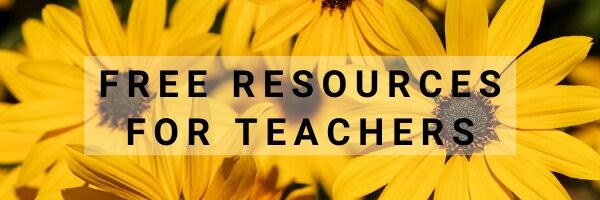
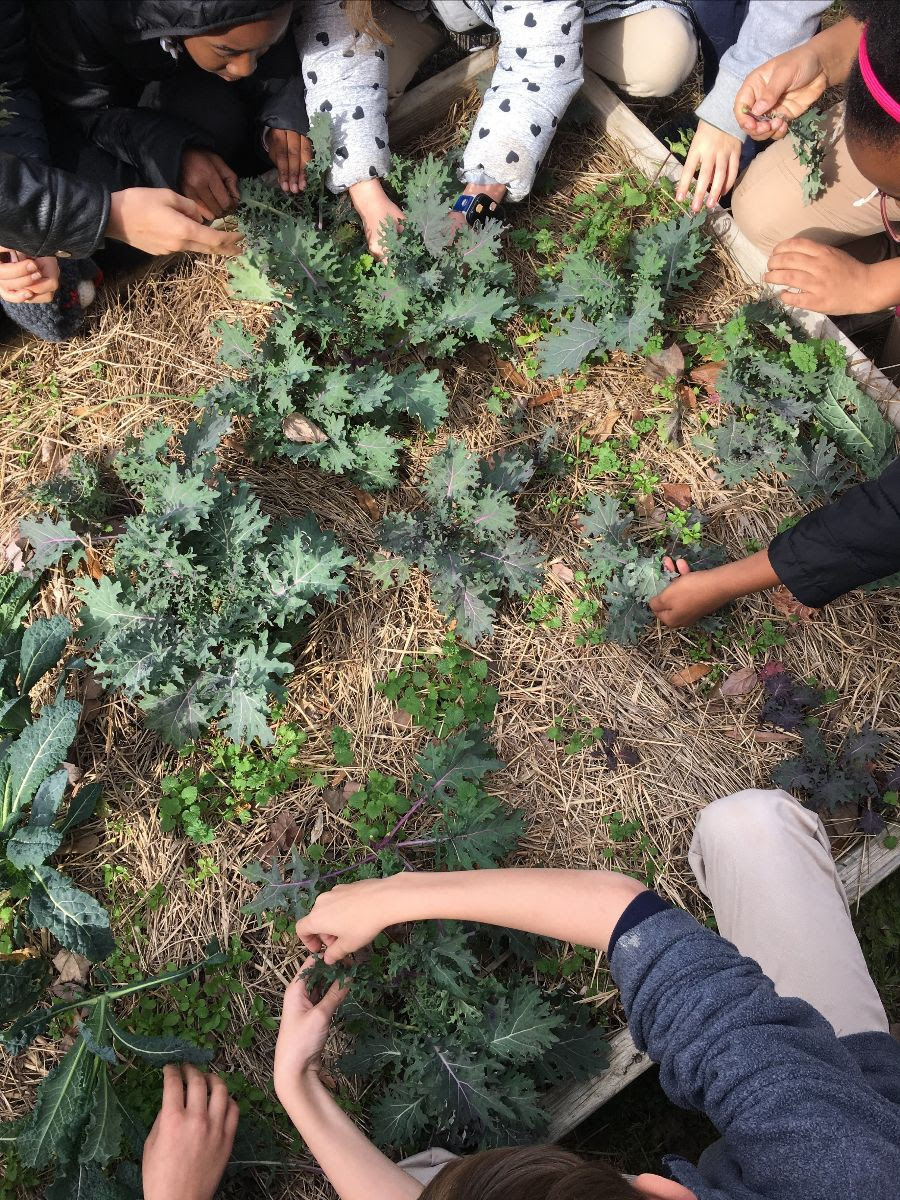
This Friday, May 8: Kids Gardening 101
Join Wylde Centers school program managers Sarah Dasher and Nichole Lupo on May 8 at 12 PM for our Kids Gardening 101 webinar! Learn how to safely engage your students in your home or school garden while reinforcing classroom standards with hands-on activities. We’ll cover topics like incorporating standards-based learning, garden safety, planting techniques for kids, keeping kids constructively engaged, and choosing kid-friendly plants.
Webinar will be held Friday, May 8 from 12 PM – 1 PM. Session limited to 100 pre-registered participants. Educators are invited to use promo code "WYLDETEACHER" to receive free access.
More free resources:
- Simple, screen-free activities for the kitchen and garden requiring minimal materials can be found here at BackPocket Learning.
- Distance teaching resources, virtual gatherings, and an online forum here at the School Garden Support Organization Network.
- Life Lab in Santa Cruz, CA has a YouTube channel full of tutorials, activities, lessons, and songs.
- The Center for Ecoliteracy in Berkeley, CA is offering a free download of an interactive guide for understanding food and climate change, ideal for those at home with 6th-12th graders.
- Edible Education for the Home Classroom from The Edible Schoolyard Project is full of activities designed to encourage students to imagine, create, learn, connect, and reflect.
- Student-driven outdoor lessons and activities from the folks at Out Teach are here.
- All of Education Outside’s lessons and resources are available here on the FoodCorps website.
- Captain Planet Foundation’s Project Learning Garden curriculum is always available online.
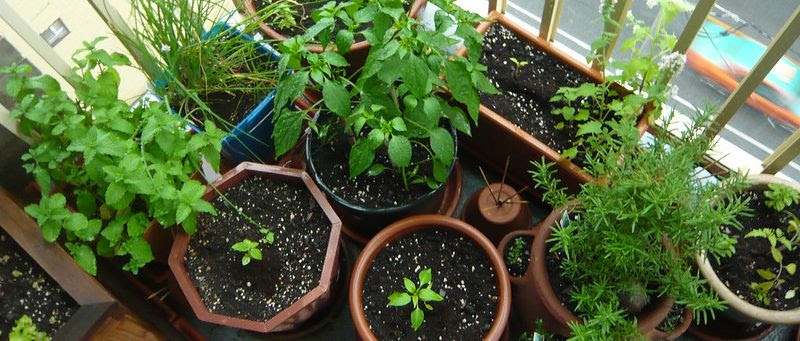
Garden Tip: Plant Your Summer Garden
While we’re all stuck at home to maintain our health and safety, it doesn’t necessarily mean we have to be inside. Now is an ideal time to get outside and garden! And don’t worry if you don’t have a yard or patch of ground to work with--container gardening is simple, productive, and can be done with things you may have on hand. Practically any container can be used to grow plants; examples run the gamut from plant pots, window boxes, and cinder blocks to old pallets, used tires, and even bags of soil. (Please keep weight in mind when you select your containers if you’re gardening on a second-level patio or balcony.) The idea is that there is something to “contain” the soil and water so that plants can access the nutrients and moisture they need to grow.
Tasting Tip: Strawberry Topping
To make the strawberry topping, you’ll need:
- 2 cups strawberries, hulled and sliced
- 1 tsp. Sugar
- ½ tsp. Salt
- Juice of one small lemon (use half if lemon is large)
- 4 cups spinach, loosely packed
- ⅓ cup pecans, toasted
- ¼ cup crumbly cheese, like feta or queso fresco
- 2 oz. extra virgin olive oil
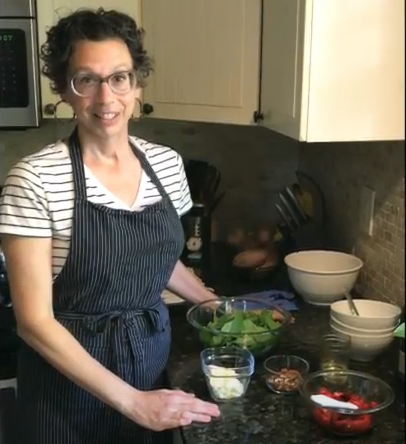
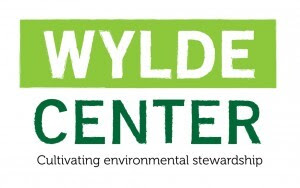
Wylde Center's mission is to educate, cultivate greenspaces and build community in the areas we serve. Wylde Center accomplishes this through educational programs, events and greenspaces that actively engage youth, families and individuals in their environment, health and community, and that develop skills in environmental science, sustainable urban living, organic gardening, health, and nutrition.
Wylde Center runs a robust farm to school and environmental education program, manages 5 beautiful greenspaces, and is a proud FoodCorps service site.
